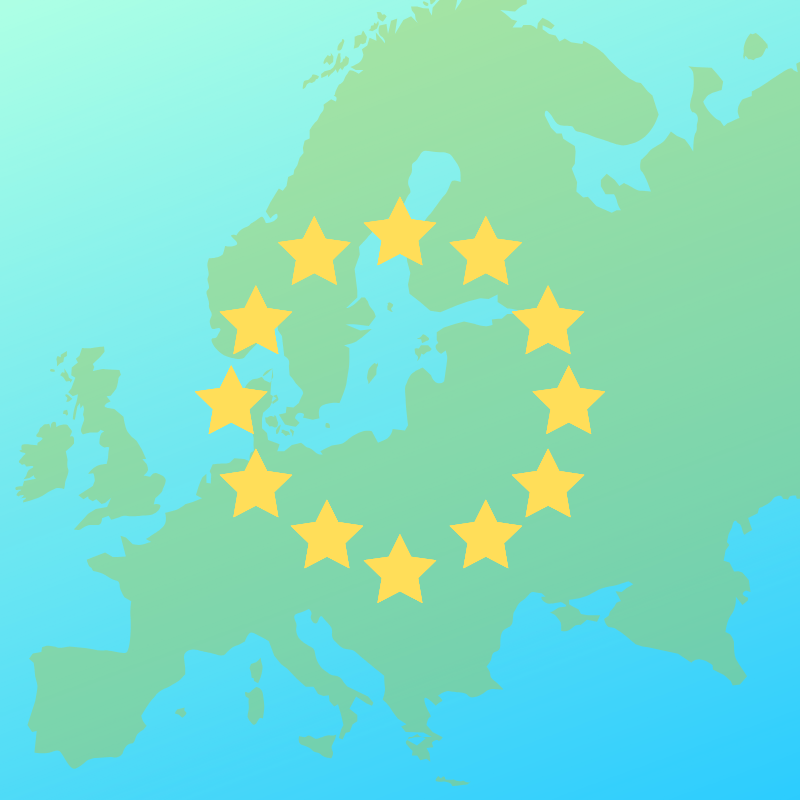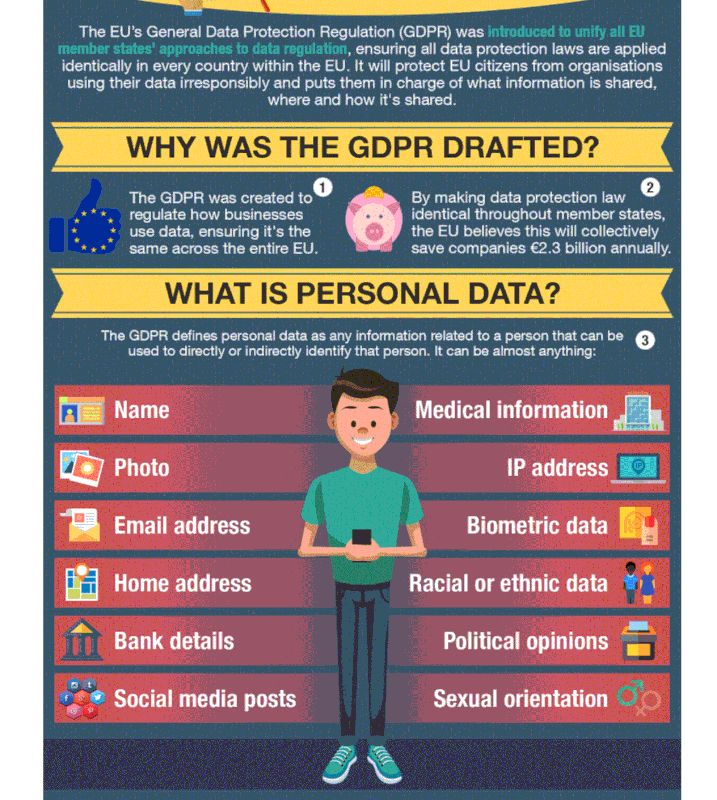These principals are required to be GDPR compliant.
While it’s certainly a nuisance to have to accept (or deny) permission to use data on any site you visit, the reason it happens is incredibly important. Known as the Global Data Protection Regulation, GDPR is a newly implemented legislation that brought sweeping changes to how businesses use the data of European consumers. What is GDPR? The Global Data Protection Regulation (GDPR) is a data protection law drafted by the European Union that came into effect in May 2018. Under strict new guidelines, any business providing goods or services to European citizens must follow privacy and data protection laws, even if the business itself isn’t based in Europe. Simply put, it brings radical changes to how businesses can gather and store the personal data of any European citizen. Companies that fail to comply with GDPR face massive fines of up to €20 million or 4% of their annual global turnover. All registered organisations operating in the EU must adhere to GDPR, along with those that have subsidiaries or sell goods or services to EU citizens. This impacts organisations in virtually every sector, including technology, online retail, software companies, financial services, and most online services. Why Was GDPR Drafted? GDPR was drafted to provide stronger regulations on how businesses handle personal data, with the changes applying to each European nation. Prior to the legislation, companies had unrestricted access to how they gathered personal private data for business uses, with most consumers being none the wiser to how their data was gathered and shared. The goal of GDPR is to better regulate how data is gathered and shared between businesses, letting consumers know exactly what information is being gathered and for what purpose. Customers have the option to accept or reject these terms, ensuring they have a say in what happens to their data. How Does GDPR Expand Privacy Rights for EU Citizens? According to Betipy there are several ways in which GDPR impacts the privacy rights of EU citizens:
What Impact does GDPR Have on Customer Engagement? With stronger regulations in place on the flow of personal data, EU citizens now have complete control over the handling of their data. This has far reaching consequences on many aspects of a business, namely their customer engagement.
Their engagement must improve or they will fall behind the competition, with businesses embracing strategies and processes to comply with GDPR and provide a better experience for their customers. So, what type of impact does GDRP have on customer engagement? Obtaining Consent Consent is one of the fundamental principles behind GDPR. Customers now have the power to accept or deny consent for how their data is collected and processed, which means that businesses must now take steps to obtain consent that was previously unrequired. Businesses will need to ensure that customers have the choice between opting in or out of their data collection processes, using suitable tools to engage the customer to obtain the necessary permission. In most cases, a robust consent management system will provide a quick and effective way to engage customers to obtain consent for data collection purposes. Increased Engagement One notable impact GDPR has on customer engagement is the need to increase their overall engagement. Compliance with GDRP means that most businesses now need to engage their customers on a much higher, more detailed level. For example, they must now tell them exactly what type of data they are gathering, why this is being gathered, and who this data is being shared with. Taking things further, businesses can ensure customers of the various benefits gained from their data collection, showcasing that the collection of their data does offer them value. The simple act of obtaining active consent for the collection of personal data means that businesses need to engage more frequently than ever. In fact, GDPR provides consumers with an array of privacy rights that an organisation will need to re-engage with their customers to remain compliant. Transparency GDPR isn’t about forcing businesses to do the bare minimum and be transparent in how they gather, use, and share consumer data, it’s about creating an opportunity to develop a new approach to building transparency and trust through their actions. Businesses should take a genuine approach to be open and transparent with how they handle their customer data. This should be done not to avoid fines for failure to comply with GDPR, but to develop genuine trust between their customers. Those that are fully engaged in showing their transparency to customers naturally benefit, as consumers are more likely to grant permission to use their data when there is a level of trust between them and the business. Personalized Engagement Because GDPR allows customers to have all their data forgotten and never collected again, businesses must work harder to provide a personalized engagement that keeps customers onboard and avoiding the right to be forgotten. Personalized engagement can take many forms, namely providing customers with frequent engagement that keeps on the track to purchasing goods or services. To make sure the engagement is a personal experience, brands can approach each customer using their buying preferences or behaviours. For example, if a CDP indicates that a customer likes to frequently visit a coffee shop, then providing a relative coupon or offer provides a personalized experience that they’ll find valuable. When engagement is improved like this, customers feel that their data does offer value so are more willing to grant permission. |
Categories
All
Archives
November 2023
|
|
Locations:
New Orleans, LA Nashville, TN |
|
Digital Media Ghost @2020
|




 RSS Feed
RSS Feed
